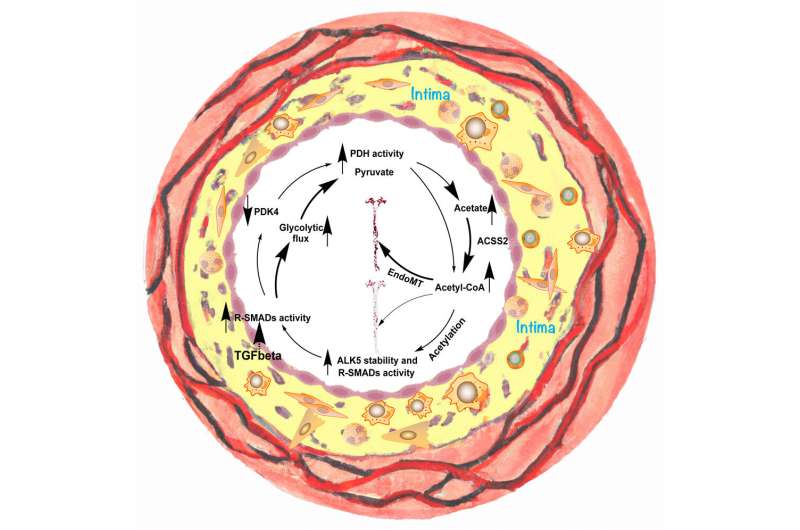This article has been reviewed according to Science X's editorial process and policies. Editors have highlighted the following attributes while ensuring the content's credibility:
fact-checked
peer-reviewed publication
proofread
Acetate controls endothelial-to-mesenchymal transition: Potential therapeutic target for reducing atherosclerosis

In a new study, researchers including Yale School of Medicine's Michael Simons, MD, identify the molecular underpinnings of persistent endothelial-to-mesenchymal transition (EndMT), an important process related to vascular inflammation in diseases including pulmonary hypertension.
Researchers found atypical acetate production from glucose triggered metabolic modulation of the endothelium activated TGF-β signaling, triggering a positive feedback loop and EndMT persistence.
The work identifies endothelial ACSS2 as a potential therapeutic target for reducing atherosclerosis. The study is published in the journal Cell Metabolism.
More information: Xiaolong Zhu et al, Acetate controls endothelial-to-mesenchymal transition, Cell Metabolism (2023). DOI: 10.1016/j.cmet.2023.05.010


















